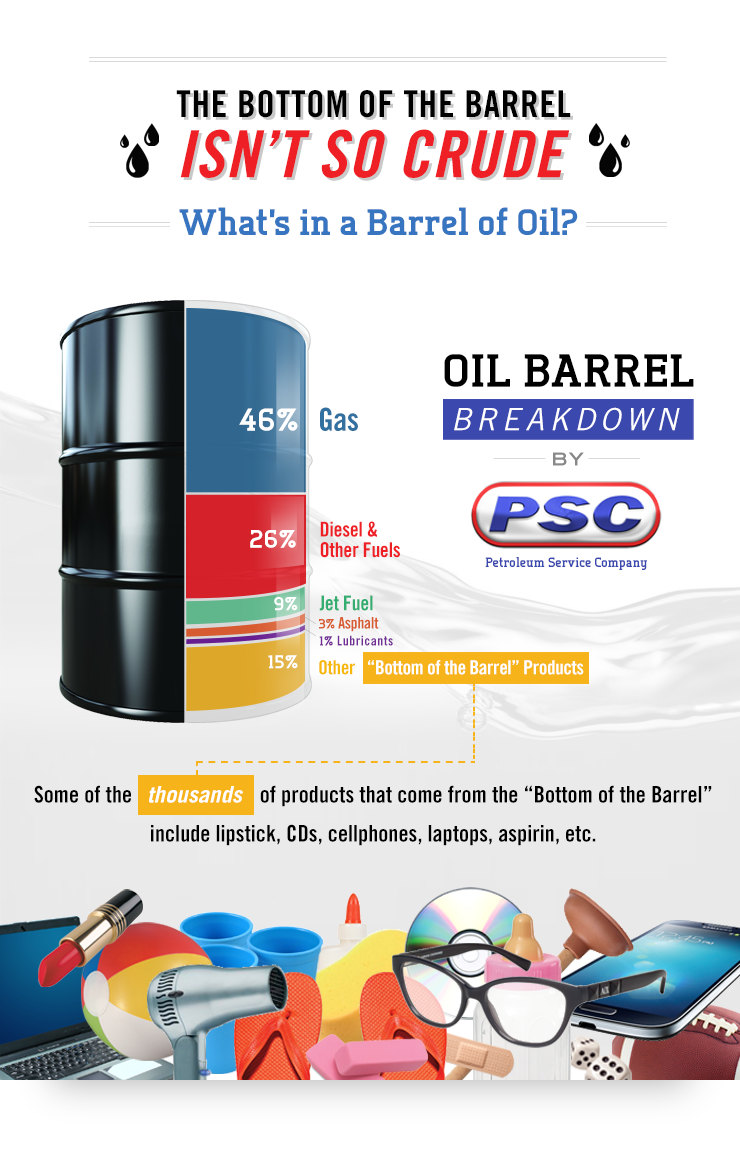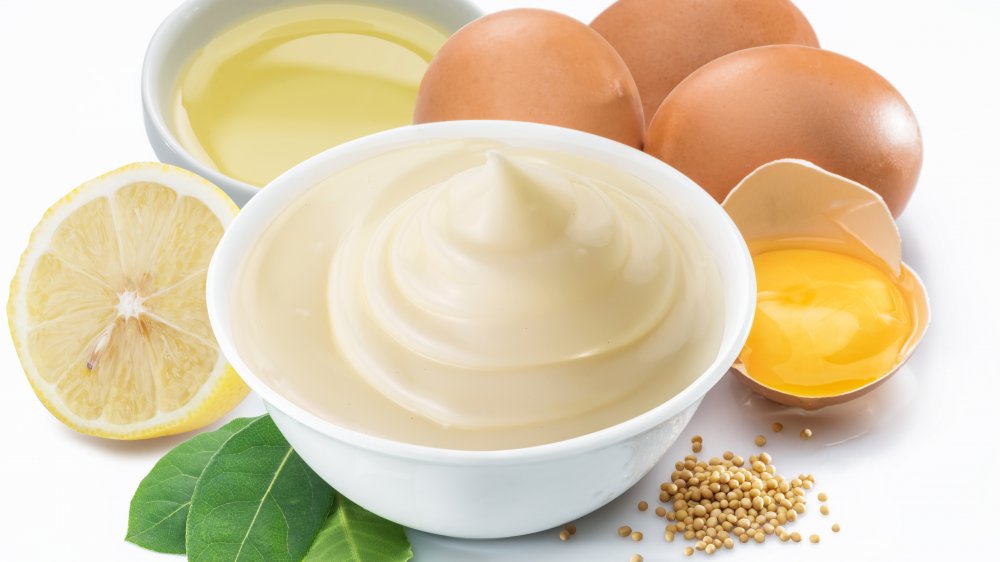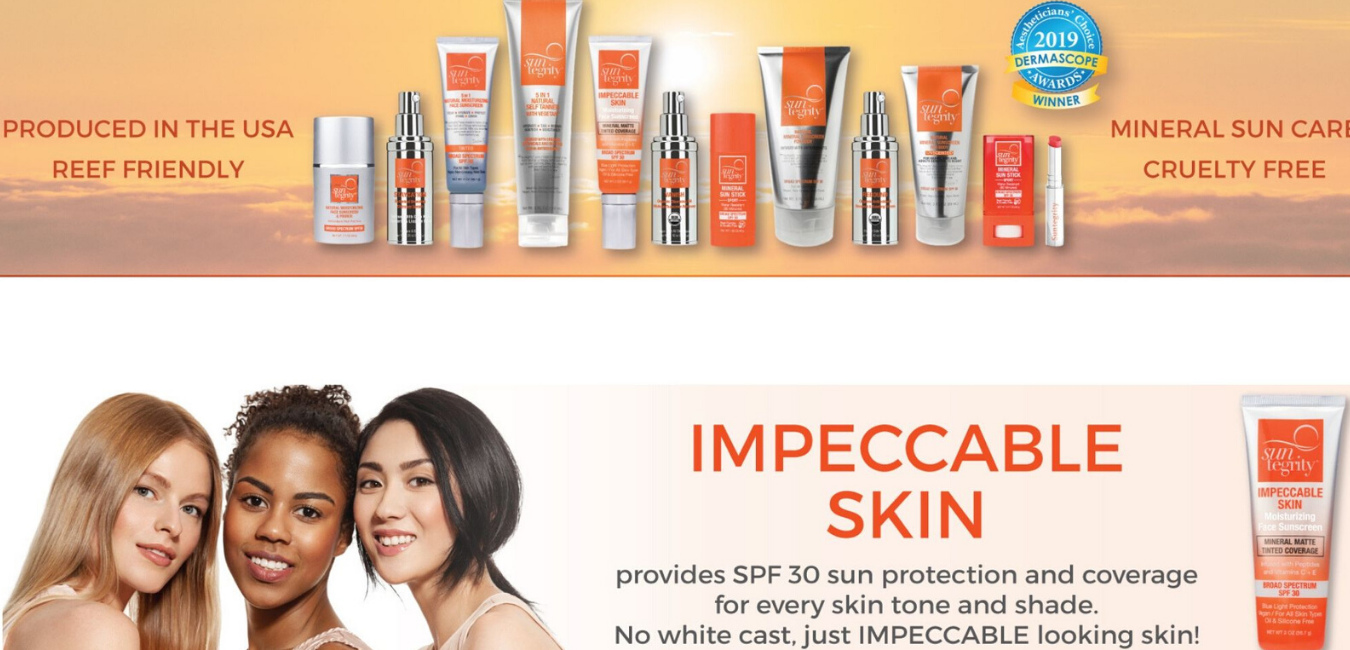Keeping your face hydrated with certain types of skincare products is a no-brainer if you deal with dry or flaky skin. However, even people with oily or acne-prone skin need their daily dose of moisture. Instead of applying a thick or heavy cream, which may bog down oily skin types, the goal is to apply on an oil-free, non-comedogenic moisturizer that sits lightly on top of your skin. Contrary to popular belief, most oils and oil-based moisturizers will not clog your pores and cause breakouts. The theory with using oils on breakout-prone skin is that they actually help balance your skin's sebum production, and help your skin's own oil flow more freely . If you have oily or acne-prone skin, the most important thing to look for when choosing an oil-based moisturizer is "non-comedogenic", which means it will not clog pores.
Examples of non-comedogenic oil-based ingredients include jojoba oil, linoleic acid, argan oil, and grapeseed oil. An oil-based moisturizer is best for those with dry skin that has a damaged barrier or lacks sebum. The oil-based ingredients will help to replenish the skin's barrier function. Many oils also contain vitamins and fatty acids that impart anti-aging benefits. For instance, rosehip seed oil contains provitamin A, mostly as beta carotene. Beta carotene has the ability to increase cell turnover and promote regeneration in the outer layers of the skin.
Over time, this can help even out skin tone and add a "glow" to the skin. So this oil-based moisturizer not only helps to replenish the skin's lipid barrier but also provides a youthful glow to skin. These natural oils are also able to work to repair and protect the skin barrier and provide lasting nourishment whenever your skin is feeling dry.
So while moisturizers provide instant hydration, face oils provide long-lasting moisture with a vitamin-enriched bonus. So oils also work by helping the skin barrier seal everything in, ensuring none of your skin's water content gets lost. All three experts agree that moisturizers can be swapped out for face oils. Says Dr. Marmur, "Oils are occlusive, which means they trap moisture on the skin. If you're someone with oily skin, you don't have to miss out on the benefits of an oil. "Many people feel that oily skin types cannot use oil-based skin-care products, which is not true," says Dr. Zeichner.
Can you use oil instead of moisturizer Our pick for the best water based moisturizer for face is Formulyst Super Hyaluronic Water Moisturizer. This lightweight formula features hyaluronic acid, the key molecule involved in skin hydration. Hyaluronic acid helps boost your skin's natural nourishing powers by attracting atmospheric moisture and transforming it into intense hydration for your skin.
Even though it is a water based moisturizer, Formulyst Super Hyaluronic Water Moisturizer contains jojoba oil and apricot kernel oil to balance oil production. Both of these botanical oils are non-comedogenic, so you don't have to worry about clogged pores or breakouts. It is lighter than jojoba oil or coconut oil, and thus better at controlling facial oils. Second, it has a great amount of vitamin E, about twice as much as olive oil! An interesting study measured the ability of grapeseed oil to help oily skin.
Grapeseed oil is high in linoleic acid, which has been thought to reduce clogged pores. Although the main benefit of a moisturizer is that it locks in moisture, the active ingredients that can be added to moisturizers are also a perk. For example, hyaluronic acid, an amazing hydrator, is found in many moisturizers.
If you are concerned about dark spots, anti-aging, or acne concerns you'll easily find a moisturizer with the actives to address the issue. If you have dry skin, using a moisturizer can help lock in moisture. Moisturizers also work well for those with oily skin, as they are light and don't contribute to excess oils. If you're on the hunt for an oil to add into your routine, Levin recommends squalene, marula, or jojoba oil, since they can help with redness and won't clog pores, given the molecule size. These natural oils will not only condition skin, but they're also packed with essential vitamins.
Gohara mentions mineral oil-based products like Vaseline are also a great choice for most skin types. Oils to avoid in skincare are argan and coconut oil, since the molecule size is larger and therefore may contribute to acne . If you've never used a facial oil before, we recommend starting with a daytime oil, like Daily Reviving Concentrate.
This antioxidant-rich oil stars sunflower oil, tamanu oil, and ginger root essential oil to help revitalize the skin. The lightweight formula also helps protect the skin from free radicals and damaging environmental stressors. Use it in your daily skincare routine for radiant, healthy-looking skin. Oils give your skin an instant softness and smoothness that can be kind of addictive .
But more than that, they're often packed with essential nutrients, fatty acids, and antioxidants. Plus, adds Chan, they form a protective layer for your skin cells. While they're not the be-all and end-all solution to skin issues, they do their fair share by repairing and protecting your skin barrier, which helps your skin absorb other skin care products. If you're not seeing the dreamy skin you imagined you would from serums and moisturizers alone, an oil might be able to make that happen. Depending on your skin type, however, Dr. Zeicher states, "Face oils are emollient-rich products that help soften rough cells on the surface of the skin. "A few drops of an oil is usually enough for the full face.
Usually a pearl-sized amount of moisturizing cream is used for the face," says Dr. Zeichner. Both Dr. Zeichner and Holey agree that products should be applied in order from lightest to heaviest in consistency, meaning that you should apply your face oil before applying moisturizer. Beauty routine — the sort of regimen that women and men used thousands of years ago to groom in the ancient kingdom of Egypt and the Greek and Roman empires. Today, a combination of extracts — coconut, jojoba, almond, hemp, avocado, rosemary, ylang ylang, argan, and others, depending on each brand — are blended to accomplish a sorta-scientific miracle. With oily skin, these natural ingredients trick your skin into thinking it already has enough oil, shutting off sebum production and closing down the shine factory.
In dry or blemished areas, the soothing plant materials also help to lock-in moisture by forming a protective barrier, while also cleaning out or refreshing pores to end irritation and quell redness. These traits make face oils great for dry, oily,orcombination skin as they balance, detoxify, and mattify with just a minuscule amount of liquid. The natural moisturizing barrier protects your skin from external threats such as dust, dirt, and bacteria. However, this barrier weakens over time due to dehydration, extreme sun exposure, improper diet, and aging.
That is why you need to include facial moisturizing products in your skincare routines, such as serums, facial oils, and moisturizers. Everyone's skin can benefit from the inclusion of skincare products with moisturizing properties. However, if your skin type is oily, acne-prone, or combination, then an oil-free moisturizer is going to feel much better on your skin than a heavier, oil-based formula. Also, if it's the middle of summer or you live in a humid climate, oil-free moisturizers are usually the way to go. The result is beautiful, silky skin that's balanced, radiant and healthy.
And when your favorite facial moisturizer fails to deliver that extra hydration, sneaking in an extra layer of a moisture proves to be a necessary step. While adding a facial oil into your skincare regiment may seem like an intimidating addition, the natural absorbing and enriching ingredients may be just what your skin needs. Take it from makeup artist and co-founder of Votary skincare, Arabella Preston, who famously helped guide Kate Middleton on achieving her own wedding makeup and is a strong advocate for natural facial oils.
From the proper application techniques to the benefits of oil cleansing, here Preston shares why facial oils should be your new vanity go-to. It's a known fact that our skin requires water to keep its healthy glow. That's why there are many different types of skincare products on the market designed to hydrate and moisturize (there is a difference between the two, but we'll get there in a bit). We know navigating between these different products can be a bit tricky, which is why it's important to learn more about each product, its benefits, and how your unique skin type factors in. To this end, we've decided to highlight the differences between moisturizers, creams, and oils to help you pick out the right products for your regimen. Extracted from the seeds of wild rose bushes, rose hip seed oil has seen a surge in popularity and is increasingly found in facial skincare products that tout moisturizing, anti-aging benefits.
Our top-rated Powerful-Strength Vitamin C Serum is one of our best-selling facial serums. This lightweight formula contains 12.5% vitamin C and hyaluronic acid to instantly boost radiance and smooth the skin's appearance. With regular use, it helps reduce the look of fine lines and wrinkles and minimize the appearance of enlarged pores for firmer-looking skin.
This potent formula is suitable for all skin types and can be used morning and night for a healthy-looking glow. We obviously need a moisturizer to hydrate our skin every day but the question revolves around its capabilities and whether it'll keep our skin hydrated for the whole day or not. All right, so you know there's a major difference between canola oil and motor oil, but what about skin oils?
As it turns out, every face oil has a different formulation, weight, and absorption rate, making some better suited for certain skin types and concerns than others. Castor oil and grape-seed oil, for example, decrease excess oil on acne-prone skin, while coconut oil and avocado oil act as incredibly rich moisturizers for dry skin. Extracted from the kernels found in the fruit of Moroccan argan trees, argan oil has high levels of vitamin E, omega-3 fatty acids, and antioxidants. While it first claimed fame as a savior for dry, damaged hair, the oil also works wonders on the face and body. The fatty acids help our best for dry skin types with intention of anti aging. There are so many new and exciting products in the beauty world that it's hard to keep up with all the developments.
Whether it's an oil, serum, lotion, cleanser, or balm, it seems like there's a product that promises to fix any skincare concern. Body lotions and body oils have been around forever, promise to deliver moisture to your skin, and slow natural signs of aging. Lauren Siso, a licensed esthetician, and ALP owner of ELLEMES Medical Spa in Atlanta, Georgia, gave the details on what you need to know before choosing lotion or oil.
Body oils are significantly lighter and non-greasy than body creams or lotions and absorb fast without leaving a greasy behind. Those who apply body creams or lotions on a daily basis remark that they feel sticky and oily afterward. It completely depends on what kind of oil you are using on your skin.
To get the best results out of body oils, you should consider using organic and plant-based oils including jojoba oil, argan oil and such. Look for oils rich in essential fatty acids, vitamins A and C, lycopene, beta-carotene and antioxidants, suggests O'Brien. "If face oils are new for you and you are unsure where to start or how your skin will react, I would suggest a single-ingredient natural oil like rosehip, seabuckthorn and black seed," she says. She specifically sings the praises of rosehip oil as it's high in linoleic acid, very hydrating and absorbs quickly, so it works well for all skin types. For people with dry and combination skin types who want to use both an oil and moisturizer simultaneously, Rouleau says that many people actually apply them incorrectly.
Most people know that skin care products should be applied from lightest to heaviest, but not many people actually know what "lightest to heaviest" means. As you can probably guess, facial oils are oil-based liquid formulas designed to be used on the skin. They're typically formulated with non-comedogenic botanical oils and essential oils, which won't cause breakouts or clogged pores. Facial oils often also include plant extracts and antioxidants.
These rich, emollient formulas can help moisturize and soften the skin, nourish the skin barrier, and help address some skin concerns, like dryness or dullness. Beyond that, while oily and acne-prone skin types can get away with using facial oils, there are still varieties that may be too heavy or pore-clogging. Argan, jojoba, tea tree, evening primrose, and almond oils are some of our favorite picks for skin that's easily broken out. For these, Zeichner recommends applying before you moisturize but after—or even instead of—your serum.
The other way you can use face oils is as the last step in your routine at night or the second-to-last before sunscreen in the morning. That way, they're acting as a barrier to keep all the actives in your skin-care products locked into your skin. Plummeting temps and cranked-up heaters suck moisture straight from the skin. Oils are the ideal antidote to dry, flaky skin and rough, rosy cheeks — and they can be much more effective at moisturizing than your standard over-the-counter lotions and creams. For softer skin and hair, Dr. Hanlon recommends applying a pea-sized amount of coconut oil to your driest areas.
Almond oil is packed with hydrating omega-3 fatty acids, making it is a good choice for sensitive skin. This is a very popular alternative that is very well-known, cheap and can be found at your local grocery store. Coconut oil contains antioxidants and vitamins that help your skin stay moisturized. Many people worry about feeling sticky after applying it, but coconut oil absorbs rapidly into your skin and it leaves it feeling moisturized and smooth. Coconut Oil contains fatty acids that help reduce signs of aging, keeps dry skin moisturized, and can also help with other skin problems such as stretch marks, scars, cellulite, or even diaper rash. It can also be used as a natural SPF sunscreen as it blocks 20% of ultraviolet radiation.
Face oils may hold the secret to achieving healthy, radiant skin—no matter what your skin type (yes, even those of you with perpetually oily skin!). Jam-packed with nutrients like vitamin C, essential fatty acids and antioxidants,they penetrate the skin to transform and protect—helping to build a resilient skin layer known as the lipid barrier. Learn the correct way to apply them and how to choose the right oil for your skin type.
Olive oil — particularly extra-virgin olive oil — is a good all-around natural moisturizer and is recommended for dehydrated skin. Like jojoba oil, olive oil is similar to the oils naturally produced by our skin and so is absorbed well into the skin. It typically does not cause allergies, but because it's a heavier oil, those with acne should avoid using it on their face. The type of product that you use is also heavily dependent on your skin type. For oily skin, Siso says you can use just a moisturizing lotion. Normal to dry skin types can layer both lotion and oil as long as they are not acne prone in the areas where they're layering products, Siso adds.
Coconut oil is easily absorbed into the skin and is known to have many health benefits, including those from vitamins E and K, as well as its antifungal and antibacterial properties. Along with cocoa butter, coconut oil is likely to cause breakouts. "In general, coconut oil is a great option for almost everybody, except if you have oily skin and you're acne prone, I would not use it on the face," Katta says. In astudy published in the journalDermatitis, researchers found coconut oil was better than olive oil at moisturizing skin when used in a carrier. Remember to look for cold-pressed, unrefined coconut oil for your face or skin care. If your skin feels dry or dehydrated, we recommend reaching for richer, emollient facial oils, such as Midnight Recovery Concentrate.
This Kiehl's customer favorite contains olive-derived squalane, evening primrose oil, and fragrant lavender essential oil to help hydrate and replenish the skin. The nighttime oil helps reduce the appearance of fine lines and improve skin texture in just one night for softer, more supple skin. Apply a few drops in the evening before going to sleep for radiant, younger-looking skin by morning.






























No comments:
Post a Comment
Note: Only a member of this blog may post a comment.